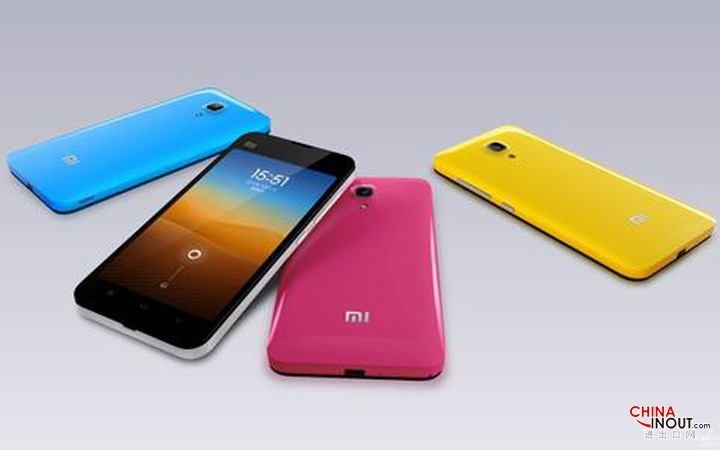小米是你从没听说过的最重要的手机生产商。在这个纷繁的手机世界,苹果和三星处于主导地位,一些已经淡出市场的品牌例如诺基亚和黑莓还依旧为大家熟知。而小米(发音听起来像“shower”一次中的“show-”再加上一个“me”)仍然没有什么知名度。
这个公司建立至今只有短短五年,却已经在中国的国内市场(世界最大的市场)上成为了实力最轻的智能手机供应商,并且开始引领一场非常成功的国际扩张运动。
小米公司已经准备好下周要公开他最新的设计模型Mi5,这款手机非常值得入手,因为小米已经超越了除苹果以外的任何公司,将要向我们展示智能手机的国际化,而智能手机如今已经可以说是人们都有的放在衣服口袋里的移动联网电脑。
中国和美国是世界上最重要的两个经济体,而两国在科技上的重要性则是两倍于经济的。
三十年来,手机生产中的关系可以被总结为“这儿发明,那儿生产”。(苹果手机可以说是“在加利福尼亚设计的”但是它确实在中国深圳生产的。)小米的发展则是众多信号中的一个,预示着这种关系的结束。小米的手机物美价廉,而且更重要的是,小米公司旨在依靠互联网,这让它可以建立起最可靠的生产和销售体制让世界都看得见。
在五年的时间里,小米从一个最初只专注于设计出一种新的手机界面到去年打败了三星成为全球最大市场的手机供应商。
小米的产品在中国风靡到它在中国已经成为了第三大的电子商务公司,只是通过销售自己生产的商品。2014年尾,小米公司估值已达到450亿美元,这个数字相较于它刚刚开始筹资的时候基本上是增加了18000%。从好几个指标来看,小米已经是目前最有价值的新兴公司。。
很多人认为小米就是“中国的苹果”,这个名头既带着对小米高超设计的一丝惊异,也有一种觉得小米习惯性山寨别人设计的嘲弄。这两种反应都是有依可循的——小米有的手机确实很少有看起来不一样的(Mi3),别的都基本是高度模仿苹果手机(Mi4)。
这个公司是雷军2010年在北京建立的。雷军是个电脑科学家,现在又是一个45岁左右的有能力的企业家。他总是无可避免地被拿来与乔布斯进行比较,既是因为他的精力和聪慧,也是因为他乔布斯式的衣着品味和产品推出。
虽然小米如今举足轻重的地位不只是和他的发展有关,也和如何发展有关。从一开始,这个公司就是在社交网络和电子商务都成为常态的假设下进行设计的。这种快速且巨大的成功还要归功于这些网络工具的普及,这让小米公司能站稳脚跟尽情伸展拳脚。
小米即将实现的扩张将会成为它真正的财富。手机是全世界需求量最大的一类复杂产品,甩开竞争对手汽车和电视好几条街。对于大多数世界人口来说,手机更是覆盖性占领了所有和外界交流的渠道。逐渐覆盖了除面对面以外所有交流方式,除了卡拉OK以外所有交流内容,除了讲价以外所有买卖形式。
虽然苹果发明了iPhone,三星推广了智能手机,但却是小米告诉了全世界如何创造一种介于奢侈品和地摊货之间的坚韧的市场和如何加大规模来满足尼日利亚、印度尼西亚、巴西、墨西哥和印度的中产阶级不断增加的需求,而这个市场正在不断扩大,不久就会逐渐成为世界上最大的市场。
现在小米抓住了一个机会,因为物美价廉的产品也能造福美国的消费者。竞争风险一如往常,但是越是不把小米当一回事的公司越是面临来自小米的巨大威胁。
小米的发展标志着中国不再单纯是外国设计的产品的进口国了。它是第一批采用新方法让中国成为设计、电子上午和服务行业的创新中心的公司之一。小米给中美公司之间的关系中带来了新的风险——这种风险并不是在于中国公司会发现自己在大肆抄袭美国公司,而是美国公司将会发现他们从中国公司借鉴的太少了。(中国进出口网)
Xiaomi is the most important phone manufacturer you've never heard of.In the rich world, dominated by Apple and Samsung and wher even fading brands such as Nokia and Blackberry remain familiar, Xiaomi (pronounced like the "show-" in shower, plus "me") is still largely unknown.
Yet this firm, only 5 years old, has already become a formidable supplier of smartphones in its home market of China (the world's largest), and has begun a remarkably successful campaign of international expansion.
As the firm gets ready to announce its newest model, the Mi5, next week, it is worth tuning in, because more than any company other than Apple, Xiaomi will show us wher smartphones -- which is to say the mobile, networked computers we all have in our pockets -- are going worldwide.

China and the United States are the two most important economic powers in the world, and that goes double for technology.
For three decades, that relationship could be summed up as "invented here, produced there." (The iPhone box may say "Designed in California," but it is made in Shenzhen, China.) Xiaomi is one indicator among many that that relationship is over. Its phones are well-designed and cheap, and, more importantly, the firm has been engineered to rely on the Internet, allowing it to build one of the leanest manufacturing and sales operations the world has ever seen.
In a half decade, Xiaomi has gone from a startup focused on making a new mobile phone interface to beating Samsung as the No. 1 phone vendor in the largest market in the world last year.
Xiaomi's products are so popular in China that it has become the third largest ecommerce firm there, just selling its own products. As 2014 closed, the company was valued at $45 billion, an increase in value of something like 18,000% since its first round of fund-raising. It is, by several metrics, the most valuable startup ever.
Xiaomi is widely referred to as the "Chinese Apple," a phrase that carries both a sense of awe at its design prowess and derision at its habits as a design copycat. Both reactions are warranted -- some of their phones look like little else on the market (the Mi3), while others are almost-copies of iPhones (the Mi4).
The firm was founded in Beijing in 2010 by Lei Jun, a computer scientist and charismatic serial entrepreneur now in his mid-40s, who is predictably, often compared to Steve Jobs, both for his energy and brilliance, and for his Jobsian taste in clothes and product launches.
Xiaomi's importance, though, is about more than just its growth. It's about how it grew. The company was designed, from the beginning, to assume that both social media and ecommerce were normal. The rapid and enormous success came about largely because these tools allowed the firm to do everything backward.
Xiaomi's coming expansion will be its real legacy. Mobile phones are the most broadly desired category of complex goods in the world, beating out their only rivals -- cars and televisions -- by a mile. The mobile phone is also the near-universal source of connectivity for most of the world's population, increasingly the gateway to every form of communications other than face to face, to every form of content other than karaoke, and to every form of commerce other than haggling.
Though Apple invented the iPhone, and Samsung spread smartphones, it's Xiaomi that showed the world how to create a defensible market between luxurious and crappy, and to scale up to meet the rising demand of the rapidly expanding middle class in Nigeria, Indonesia, Brazil, Mexico, India, cumulatively the world's biggest market by far.
There are opportunities for the United States here since good, cheap products benefit U.S. consumers, too. There is also competitive risk, as always. But the biggest threat Xiaomi poses is for companies that don't take it seriously.
Xiaomi marks the end of China as a pure importer of products designed elsewher. It was one of the first companies to adopt the new methods that are making China a center of innovation in design, electronic commerce and services. Xiaomi introduces a new risk in that relationship -- not a risk that Chinese firms will copy too much from the United States, but that the American firms will copy too little from China.











